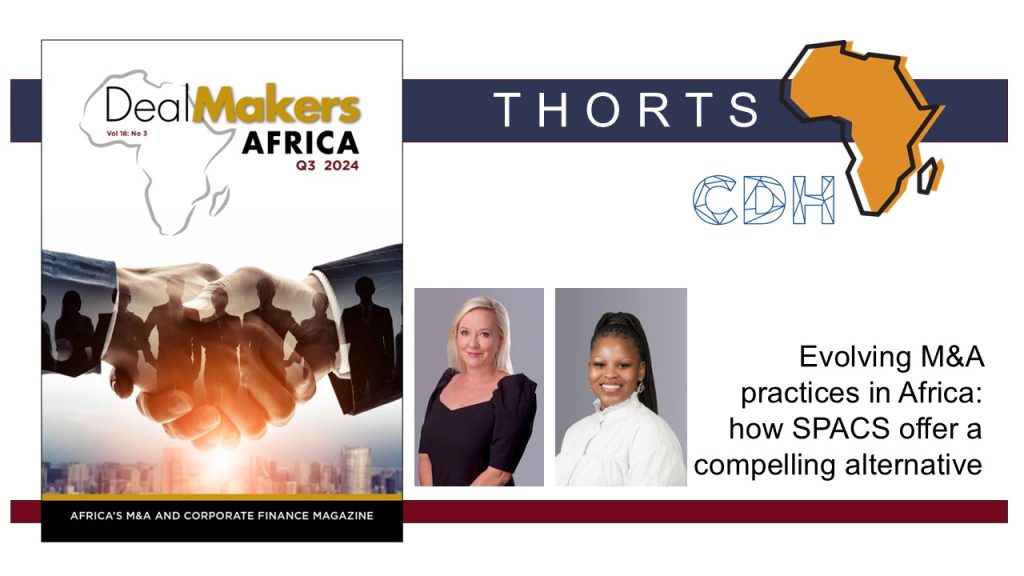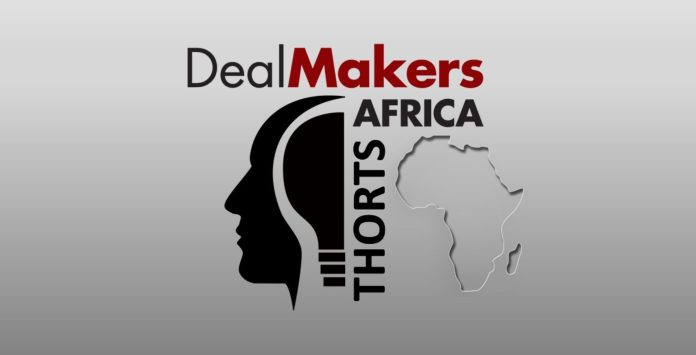In recent years, the use of Special Purpose Acquisition Companies (SPACs) has gained traction globally as an alternative route for companies to go public, bypassing the traditional IPO process. However, SPACs have yet to gain widespread popularity in Africa’s M&A landscape. Despite this, the potential for SPACs in Africa is significant, driven by the growing need for capital in sectors like fintech, infrastructure, and natural resources, alongside a surge in private equity activity and cross-border deals. This article explores how SPACs are structured in Africa, their advantages and challenges, and recent real-world examples to illustrate their potential impact on the M&A space.
UNDERSTANDING SPACS IN THE AFRICAN CONTEXT
SPACs are publicly listed shell companies created specifically to merge with private companies, offering a faster and more flexible alternative to traditional IPOs. They are typically sponsored by a group of investors or operators, referred to as “sponsors,” who aim to acquire an existing business within a specified timeframe, usually 18 to 24 months. If a suitable target is not found, the SPAC liquidates, and the capital is returned to shareholders.
SPAC LISTINGS ON THE JOHANNESBURG STOCK EXCHANGE (JSE)
In South Africa, the Johannesburg Stock Exchange (JSE) has been proactive in accommodating SPACs as part of its offering, outlining specific requirements for these entities:
• No commercial operations at inception: SPACs listed on the JSE cannot have any existing business operations or assets before listing. Their sole mandate is to raise capital and find a suitable acquisition target.
• Capital requirements: For a Main Board listing, the SPAC must raise a minimum of R500 million, while an AltX listing (Alternative Exchange for smaller companies) requires at least R50 million.
• Timeline for acquisitions: The JSE mandates that SPACs must complete an acquisition within 24 months of listing. If no deal is completed within this period, the SPAC is subject to suspension and eventual delisting.
• Investor safeguards: Capital raised by the SPAC must be held in escrow. If an acquisition is not completed within the stipulated time, funds are returned to the investors, ensuring a degree of capital protection.
• Management skin in the game: Directors of the SPAC are required to invest at least 5% of the capital and are restricted from selling their shares for six months post-acquisition. This requirement aligns the management’s interests with those of the investors.
• Lower costs and faster listings: Given that SPACs start without operational assets, they often face fewer disclosure requirements compared to traditional IPOs, reducing listing costs and shortening the time to market.
This framework offers a structured route for SPACs to attract capital while protecting investors, making it an appealing option for both local and international investors interested in the African market.
ADVANTAGES OF SPACS IN AFRICA’S M&A SPACE
• Access to capital: SPACs provide African companies with an opportunity to access international capital without navigating the complexities of traditional IPOs.
• Mitigating IPO market volatility: Given the continent’s market volatility and political risks, SPACs offer a more controlled environment for raising capital.
• Enhanced deal certainty: SPACs are designed with a clear acquisition objective, which provides a degree of certainty to target companies and stakeholders, making them attractive for businesses seeking growth or exit strategies.
EXAMPLES IN AFRICA
• As reported in September 2023, Zeder Investments’ subsidiary, Zeder Financial Services announced the sale of its 92.98% stake in Capespan Group, excluding its pome fruit primary production operations and the Novo fruit packhouse, for R511,39 million. The buyer, 3 Sisters, was a special purpose acquisition vehicle financed by Agrarius Agri Value Chain and managed by 27four Investment Managers. (DealMakers, Who’s Doing What, 21 September 2023)
• In December 2023, 10X Capital Venture Acquisition Corp. II (10X II) (NASDAQ), a publicly traded special purpose acquisition company sponsored by 10X Capital, announced the successful completion of its merger with African Agriculture, Inc. This global food security company, which runs a commercial-scale alfalfa farm in Africa, is now listed for trading on the Nasdaq. African Agriculture is the first pure-play U.S.-listed agricultural company to operate on the African continent. (Latham & Watkins LLP Announcement, 7 December 2023)
• On 1 August 2024, Catalyst Partners (a private equity firm focused on the MENA region) became the first to submit a request to the Egyptian Financial Regulatory Authority to establish a SPAC under the name, Catalyst Partners Middle East. (Grant Thornton, Could SPACs help Egypt’s IPO market take off?, 16 September 2024)
CHALLENGES IN ADOPTING SPACS IN AFRICA
• Regulatory uncertainty: Different African countries have varying regulations governing SPACs, creating a complex legal environment for cross-border transactions. Harmonising SPAC regulations across key markets could unlock more potential for these vehicles.
• Limited market depth: Many African markets lack the deep secondary equity markets required to support SPAC liquidity, making it difficult for investors to exit their positions.
• Political and economic instability: Political instability and economic fluctuations can add additional layers of complexity and risk to SPAC transactions, deterring some investors.
THE ROAD AHEAD: SPACS AS A STRATEGIC TOOL FOR M&A
Despite the current challenges, SPACs hold significant potential in Africa. They could become a key instrument in consolidating industries such as technology, renewable energy, and real estate. As African capital markets mature and more sophisticated regulatory frameworks are developed, SPACs are likely to see increased adoption.
With growing investor interest and local capital markets adapting to accommodate such innovative structures, Africa is poised to become a fertile ground for SPAC-led M&A activity. For dealmakers and investors alike, SPACs present a compelling opportunity to tap into the continent’s untapped potential.
Vivien Chaplin is a Director and Phetha Mchunu an Associate in Corporate & Commercial | CDH

This article first appeared in DealMakers AFRICA, the Continent’s quarterly M&A publication.
www.dealmakersafrica.com



